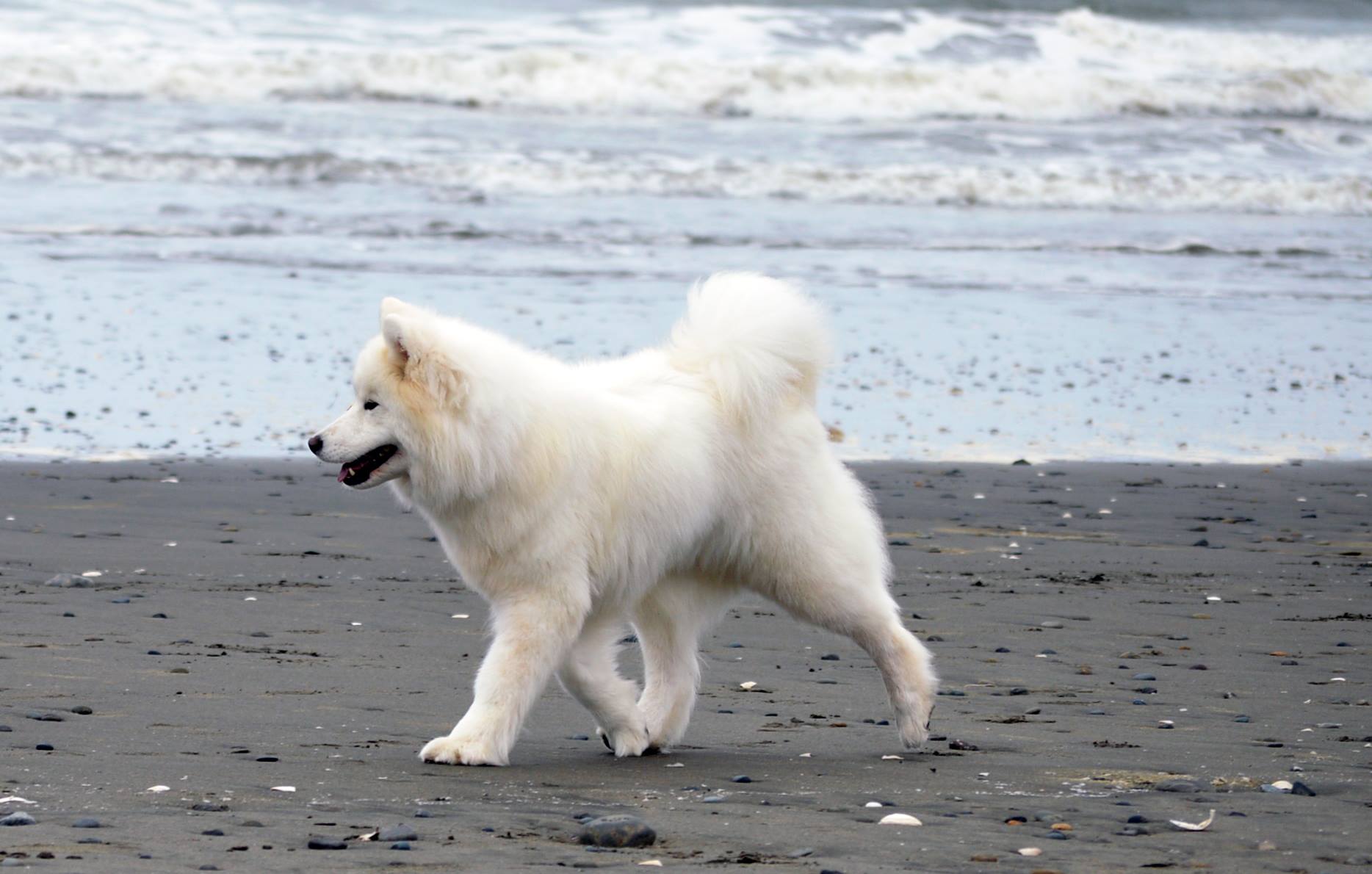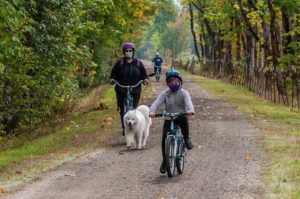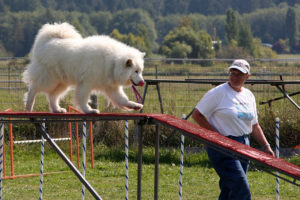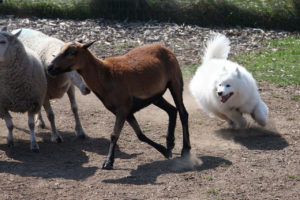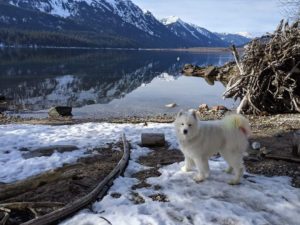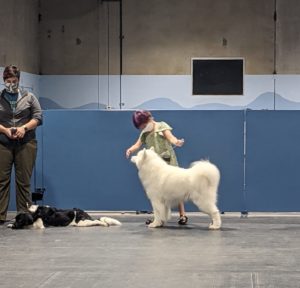Animal Behaviorist Offers Pet Safety Tips
Animal Behaviorist Offers Pet Safety Tips
For Winter Holidays
Animal behaviorist, Diana L. Guerrero offers a few humane holiday hints along with seasonal safety suggestions for pet households.
Winter holiday celebrations can be happy events but the holidays can be disastrous and even downright deadly for pets. According to animal expert, Diana L. Guerrero. “Holiday threats to animals can include seasonal decorations, ornamental lighting, ingestion of inappropriate or toxic items, excessive consumption of rich foods or harmful food, candle flames, and many other hazards.”
Guerrero is an animal behaviorist who writes columns on wild animal behavior, training, and animal etiquette. She is contributing editor to “Resources for Crisis Management in Zoos and Other Animal Care Facilities” and is the author of the holiday favorite, “What Animals Can Teach Us about Spirituality: Inspiring Lessons of Wild and Tame Creatures.”
She continued, “During this time of year we want to include our pets in celebrations and remember the holiday significance of animals, but holiday dangers and seasonal threats really exist. Fortunately, anyone can take a few pet precautions and make the winter festivities into safe and humane holiday celebrations.”
For instance, during gatherings she says to make sure that animals are occupied with their own treats and activities. “Good holiday etiquette means that pet owners take steps to make sure pets are mannerly and that your guests and family are alert to the need for restraint of food treats.”
Rich foods and inappropriate feeding can create health complications for household critters. Dangerous food items include holiday favorites such as chocolate, coffee, onions, fatty foods, alcoholic beverages, and cooked bones. Grapes and raisins can also be hazardous. Guerrero’s suggestion: “Make sure you have appropriate treats for the pets and monitor the quantity.”
Alert guests to the household pet rules and make sure your pets behave. Many guests will not appreciate your drooling darling or fur additions to their good clothing. Plan ahead to avoid problems or fine-tune your guest list to pet people. Guerrero’s suggestion: “Baby gates or play pens can keep animals from getting underfoot while still allowing them to still be part of the celebration. Pets need to be part of the family activities, but safely.”
She also recommended placing pets in an adjacent room or yard so they can have their own “pet party.” Since most kids love animals you might want to combine the two and ask young visitors to occupy pets away from the main festivities.
Guerrero stressed, “Giving pets as presents is NOT a good idea. If you want to give someone a pet for a holiday, use the clever humane alternative instead.” Her hints are to gather the pet necessities for the new critter. Next, wrap each gift separately and be sure to conclude the gift opening party with a picture of the ideal pet and/or a pet adoption certificate from an animal agency or similar entity. Your actions will be fun and conscientious-and will build up the excitement and anticipation of the new arrival.
Need some other ideas? You can get pet breed and training books (check out Guerrero’s recommendations at www.arkanimals.com), pet beds or housing, dishes, brushes, accessories, toys, and certificates for grooming and other services like training and veterinary care.
“Make the effort a family affair and search for the pet together. Families grow closer through the researching and planning for a new household member. Those efforts will also keep the pet in the home and make the adaptation easier for everyone-not just the new pet. The big perk is that your humane actions sets a good example for kids and others within your influence.”
- Remember that plants (holly, mistletoe, poinsettia, lilies, Christmas rose, etc,) are poisonous to pets.
- Pine needles can create problems if ingested.
- Unsecured Christmas trees pose hazards to climbing critters as they can topple or be knocked over.
- Don’t forget to prevent the ingestion of Christmas tree water since stagnant water or preservatives can be toxic.
- Other holiday hazards include menorahs, candles and liquid potpourri pots.
- Fire and burns are not the only threats to pets and the household. Scented items can also be harmful–especially to birds.
- The ingestion of inappropriate foods, tinsel, ribbons or garlands can cause sickness or obstruction.
- Breakable items such as glass and other ornaments pose a threat along with electrical cords, heated decorative bulbs, hooks, and a wide variety of other adornment items.
- Keep décor items out of reach of your pet or in places your animals cannot get to them.
- Nicotine poses a threat. Keep it out of reach.
Guerrero concluded, “Taking a few steps to plan your holidays and the arrival of new pets can protect and save the life of many critters-but it will also save your sanity!”


